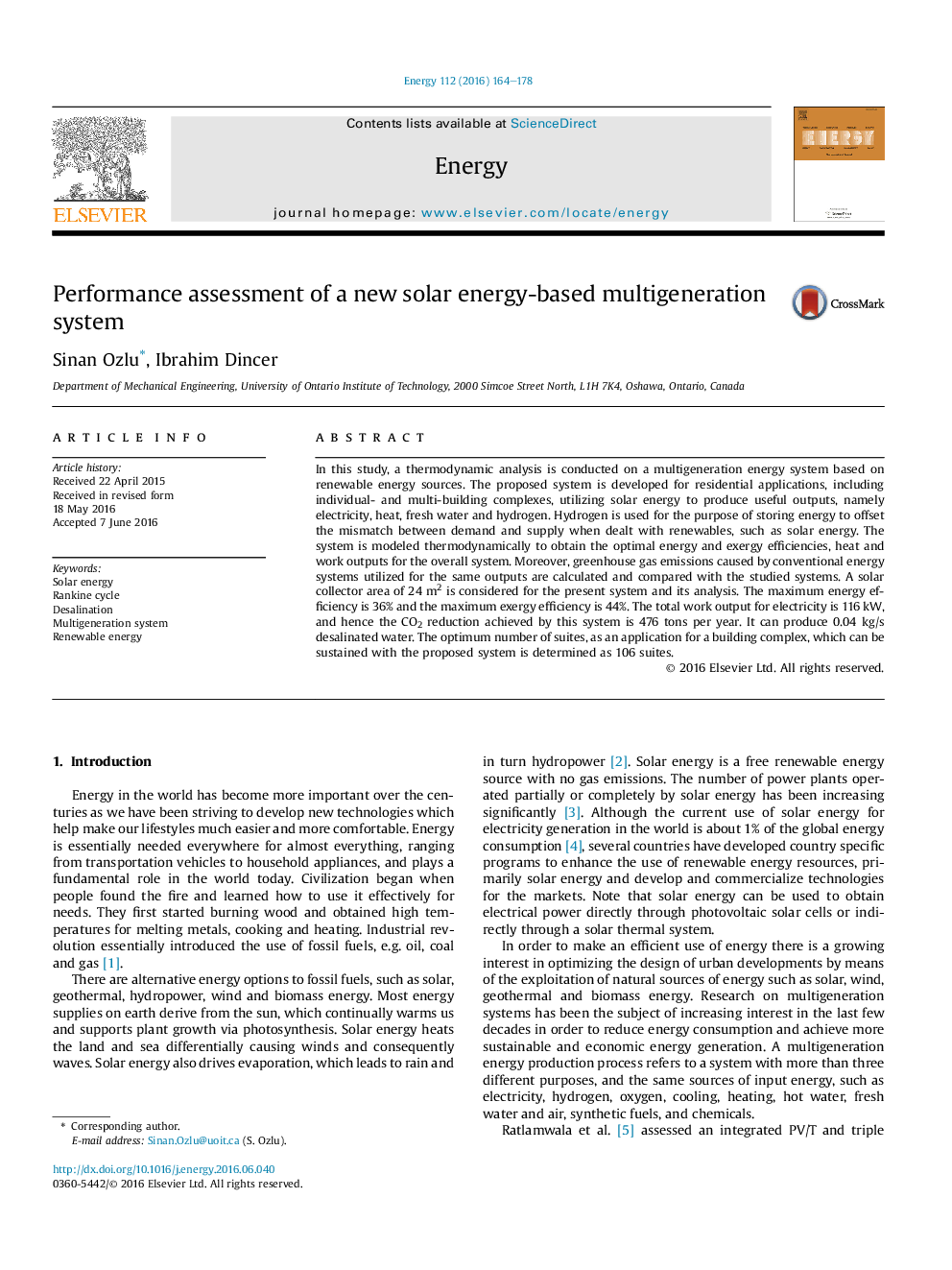| Article ID | Journal | Published Year | Pages | File Type |
|---|---|---|---|---|
| 8072942 | Energy | 2016 | 15 Pages |
Abstract
In this study, a thermodynamic analysis is conducted on a multigeneration energy system based on renewable energy sources. The proposed system is developed for residential applications, including individual- and multi-building complexes, utilizing solar energy to produce useful outputs, namely electricity, heat, fresh water and hydrogen. Hydrogen is used for the purpose of storing energy to offset the mismatch between demand and supply when dealt with renewables, such as solar energy. The system is modeled thermodynamically to obtain the optimal energy and exergy efficiencies, heat and work outputs for the overall system. Moreover, greenhouse gas emissions caused by conventional energy systems utilized for the same outputs are calculated and compared with the studied systems. A solar collector area of 24Â m2 is considered for the present system and its analysis. The maximum energy efficiency is 36% and the maximum exergy efficiency is 44%. The total work output for electricity is 116Â kW, and hence the CO2 reduction achieved by this system is 476 tons per year. It can produce 0.04Â kg/s desalinated water. The optimum number of suites, as an application for a building complex, which can be sustained with the proposed system is determined as 106 suites.
Related Topics
Physical Sciences and Engineering
Energy
Energy (General)
Authors
Sinan Ozlu, Ibrahim Dincer,
